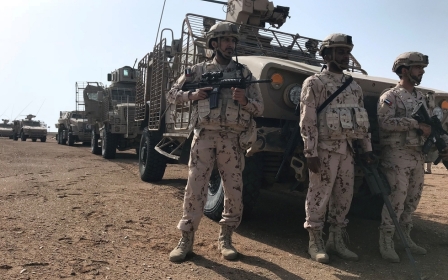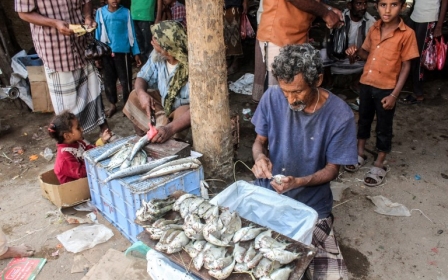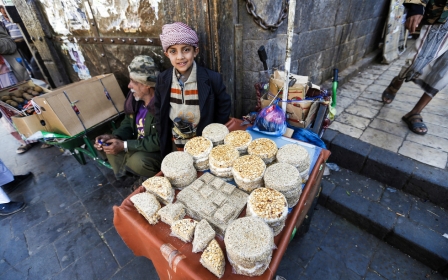As Yemen peace talks disintegrate, hope falters for families of prisoners
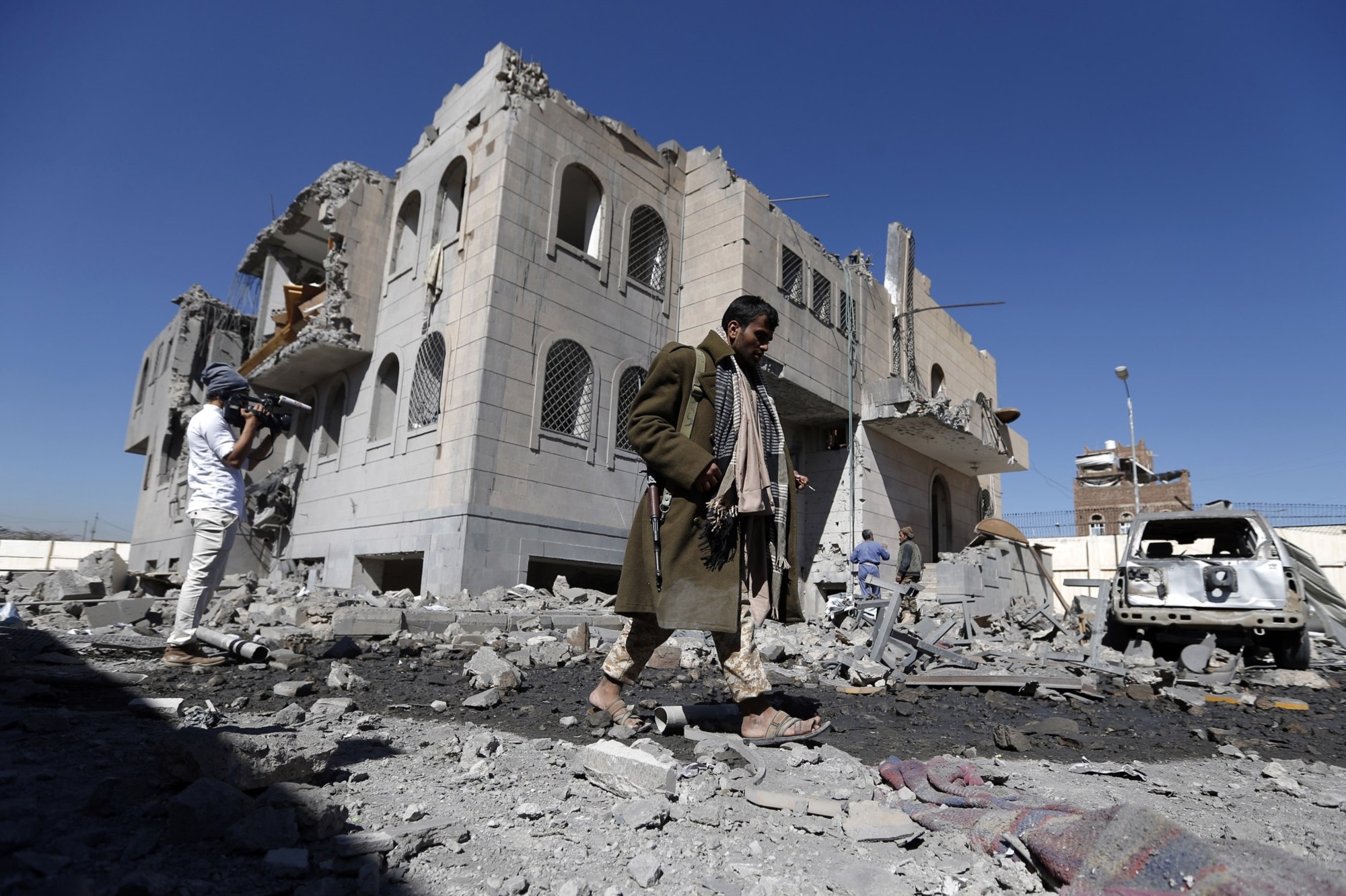
Much anticipated peace talks between Yemeni warring parties in Sweden in December were met with circumspection by many, nearly four years into the devastating conflict that has torn apart the country.
But for Nawal Omar, the talks represented a glimmer of hope that her son Mohammed might soon be free after nearly two years in captivity.
As part of the Stockholm talks, Houthi rebels identified 7,487 people held in pro-government custody whom they wanted released as part of a prisoner exchange deal, while the government of exiled President Abd Rabbuh Mansour Hadi named 8,576 prisoners held by the Houthis.
In all, over 16,000 people were set to be released on 19 January.
New MEE newsletter: Jerusalem Dispatch
Sign up to get the latest insights and analysis on Israel-Palestine, alongside Turkey Unpacked and other MEE newsletters
But unfortunately for Omar and her son, things did not go as planned - leaving them and thousands of other families in limbo.
Dashed hopes and delays
In March 2017, Mohammed Omar was working as a tailor in Houthi-held Sanaa, regularly travelling back to his hometown of Taiz, which is under the control of pro-government forces.
One day, Mohammed was stopped by Houthis between Taiz and al-Hawban area. The fighters found photographs of individuals known for their opposition to Houthis on his phone, and promptly detained him.
Nawal and the rest of the Omar family worked hard to get Mohammed released - in vain.
“We don’t have money to pay for a lawyer or someone else to push for the release of my son,” she told Middle East Eye. “I pray all the time. Only God can help us in this difficult situation.”
While it remains unknown whether Mohammed was named as one of the people to be released during the Sweden talks, the Omar family held out hope that he would soon come home after one year and 10 months of detention.
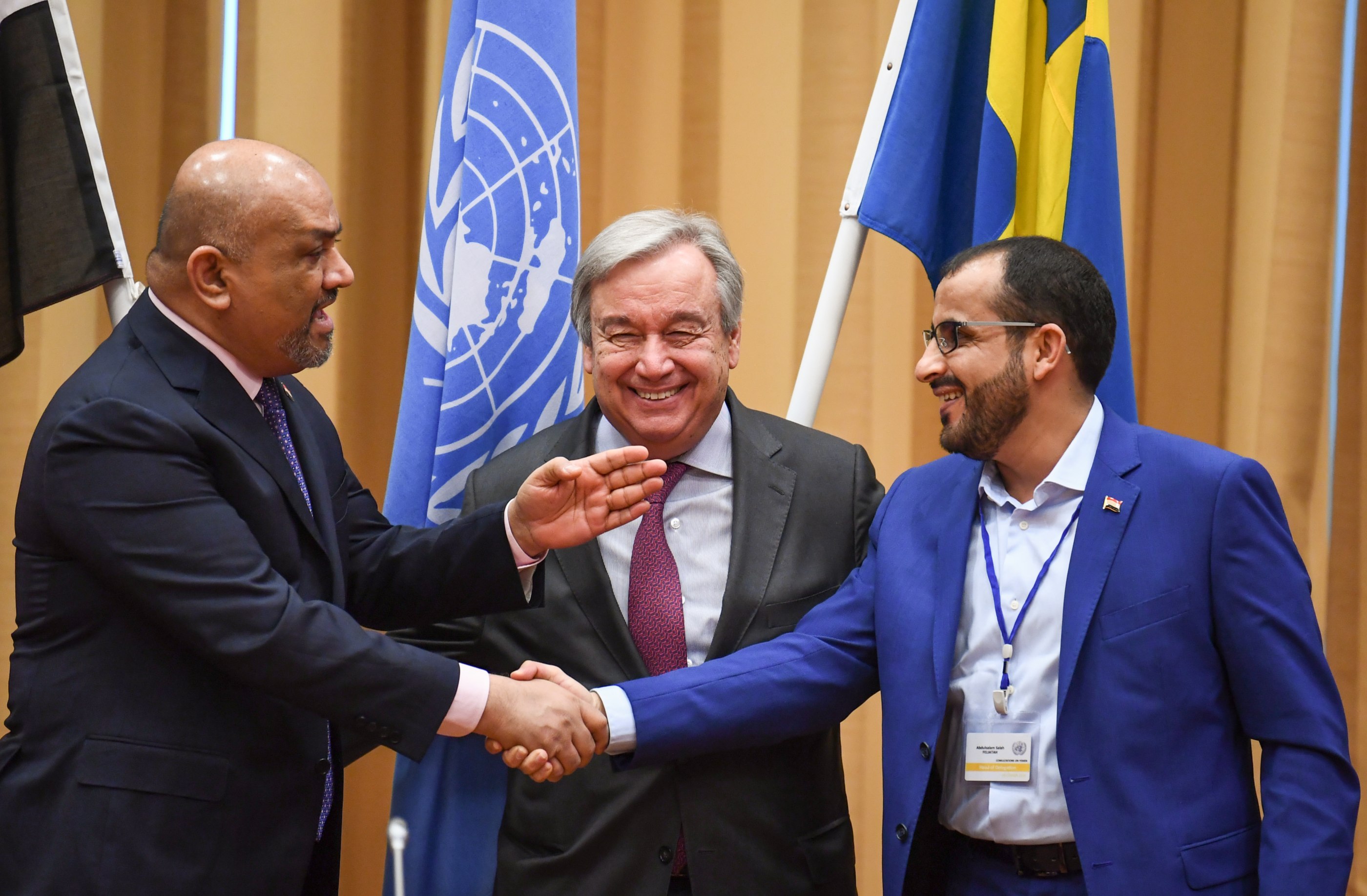
“All of us were happy to hear about the release of prisoners on 19 January, we were waiting to celebrate the release of my son,” Nawal said. “But then I was shocked to hear that warring parties did not agree over the prisoners swap deal.”
The initial deadline of 19 January came and went, however, and the prisoner swap did not happen.
Warring parties held a meeting in the Jordanian capital, Amman, in mid-January to discuss the prisoners swap, but failed to reach an agreement as both sides accused each other of lying.
On 23 January, the head of the government delegation in the prisoner exchange talks, Hadi Haig, told Reuters : “We expect that in 10 days' time a final signing [of the swap agreement] will have happened.”
The self-imposed deadline came and went, however, and as of early February, relatives of detainees had yet to hear of any developments in their loved ones’ fates - leaving many to believe that the swap deal may not happen at all.
The International Committee of the Red Cross itself reacted to the stalled efforts.
“We are aware of the difficulties of negotiating in the midst of a conflict that has lasted for more than four years and that has presumably led to thousands of people going missing, but the only hope for the operation’s implementation is through the parties’ continued progress,” the organisation warned in a statement.
Exchange of accusations
Both parties blamed each other for the breakdown of the prisoner swap agreement.
Hadi’s deputy minister for human rights, Majid Fadail, told reporters on 19 January after the failure of discussions in Amman that "Houthis provided lists of names [of people held by pro-Hadi forces] that were fake.
“We have reports and documents on those they have imprisoned,” he said. “But we don't even know where they got [these names] from.”
A source in the government Ministry of Information in Aden, who spoke to MEE on condition of anonymity because they were not authorised to speak to the media, accused the Houthis of not wanting to implement the peace talks, claiming that they were giving “irrational” pretexts to renege on the peace agreements.
“The Houthis provided the government delegation with names of the dead and names of people who are not in the prisons of the government; how can we accept these lists?” they said.
Houthi leaders did not respond to a request for comment for this piece.
But a Houthi activist based in Sanaa told MEE that the group had rejected the pro-Hadi delegation’s list of people to be released because it included names of members of al-Qaeda and the Islamic State, as well as people who were accused of having committed crimes.
“If Ansar Allah [the official name of the Houthi movement] forgives those criminals, the relatives of the victims will not forgive them,” the source said. “These criminals threaten the whole country, not just Ansar Allah.”
‘No one care about civilians’
While Ansar Allah and the government continue to trade recriminations, relatives of prisoners and the prisoners themselves feel forgotten - and have become increasingly bitter about either side taking their strife into consideration.
Since the beginning of the Yemen war, prisoners swaps have usually occurred on a small scale between pro-Hadi forces and the Houthis - but those swaps only included fighters from both sides, not civilians.
“No one care about civilians,” Tareq, the father of a civilian prisoner held by pro-Hadi forces, told MEE. “All the prisoners swap deals since 2015 did not include civilians but fighters. The warring parties release their fighters to send them again to the fronts.”
Tareq, who preferred not to give details about his son’s case because of security concerns, said he did not believe any peace talks could succeed.
“I am not stupid enough to believe the warring parties,” he said. “If they wanted a peaceful solution, they would release all civilians before fighters. But instead they violate international human law with the illegal detention of civilians.”
Tareq said that his son, like many other civilians imprisoned by pro-Hadi forces, was accused of working with the Houthis but had not been granted a fair trial.
Nawal Omar, Mohammed’s mother, also said she had lost faith.
“I visited my son last week and he is very sad about the failure of prisoners swap deal,” she said. “All of us have lost hope for freedom, since the warring parties are not working wholeheartedly towards the implementation of the prisoners swap deal.
“I call on the warring sides to forget their disputes and think about the suffering of prisoners and their harsh situation.”
Middle East Eye delivers independent and unrivalled coverage and analysis of the Middle East, North Africa and beyond. To learn more about republishing this content and the associated fees, please fill out this form. More about MEE can be found here.


